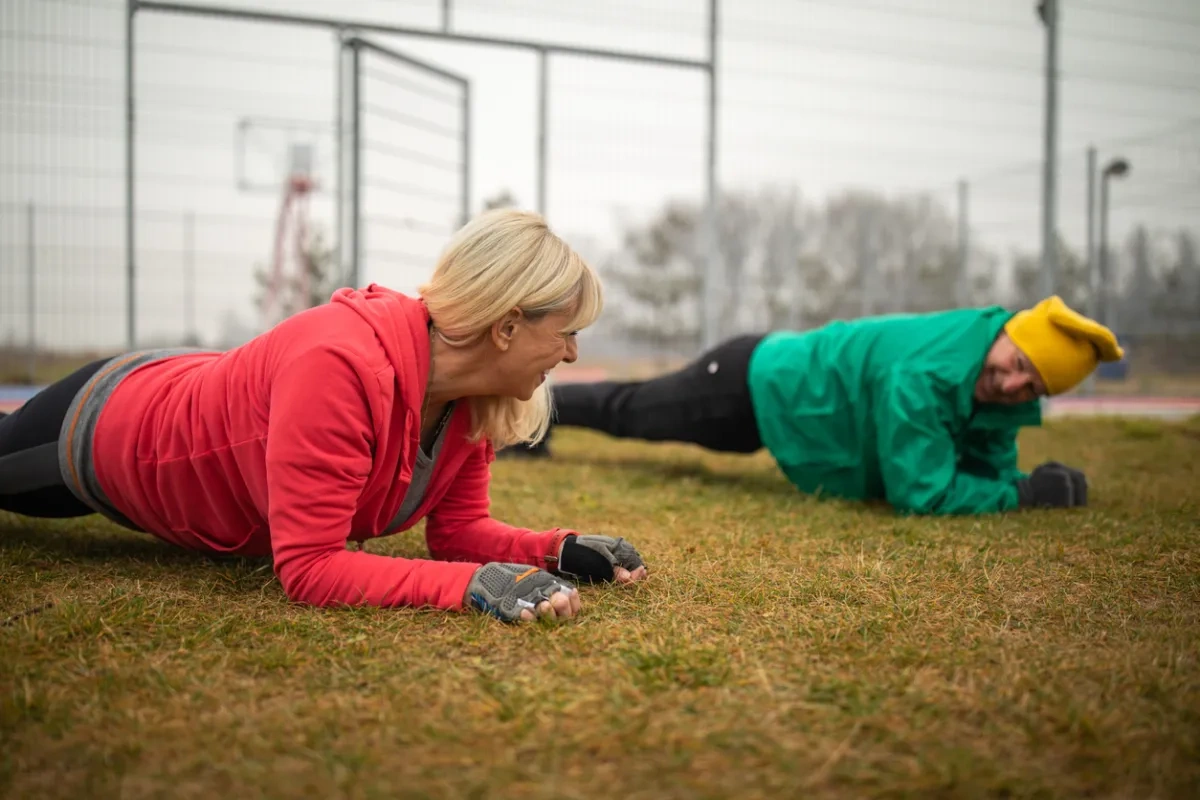

DCU research finds female and male older adults evenly matched for gains in the exercise stakes
New research by DCU’s Faculty of Science and Health has found that female and male older adults scored evenly for gains from a supervised exercise training programme, despite previous assumptions that males would score more highly.
The study, led by the School of Health and Human Performance involved a supervised 12 weeks intervention of concurrent cardio and strength exercise training to investigate whether there are any sex-specific differences in the way that older adults respond to exercise training. A total of 28 people took part, evenly split between both men and women and with an average age of 68 years.
The groups took part in three weekly sessions of exercise, split between cardio (12 minutes) and strength exercise training (12 minutes). The muscle strength, physical function, and the amounts of muscle and fat were assessed before and after the 12 weeks of exercise training.
The study, funded by the Irish Research Council and conducted at Medfit Proactive Healthcare in Blackrock, found that both groups improved a range of markers of health and, when comparing the sexes, the men and women showed largely similar scores for these improvements in muscle strength, physical function, and body composition.
The research team was led by DCU’s Dr. Brendan Egan, Associate Professor in Sport and Exercise Physiology, who points out “that it is highly relevant to investigate whether there are sex-specific differences in the response to exercise training. We know that broadly speaking exercise improves a range of health and fitness outcomes, but investigating differences between men and women, if any do exist, may in turn inform more specific and optimal exercise prescriptions for older men and women.”
Previous research has shown that combining cardio and strength exercise training has efficacy and is time-efficient in the prevention and treatment of age-related declines in skeletal muscle mass, strength, and physical function. Such findings are the basis of broad recommendations for maintaining skeletal muscle health in older adults that suggest a combination of cardio and strength training each week.
Dr. Egan adds, “On average, men tend to be stronger than women when matched for age, height, and weight, but this study shows that when doing the same training programme, the gains that older men and women make are very similar. The question remains however as to whether there is room for improving the gains made from training with more tailored exercise programmes for men and women.”
Publication Details: When Matched for Relative Leg Strength at Baseline, Male and Female Older Adults Respond Similarly to Concurrent Aerobic and Resistance Exercise Training: James F. Timmons (1) Michelle Hone (2) Orlaith Duffy (3) and Brendan Egan (2,4,5): (1)Institute for Sport and Health, School of Public Health, Physiotherapy and Sports Science, University College Dublin (2) School of Health and Human Performance, Dublin City University (3) Medfit Proactive Healthcare,Blackrock (4) National Institute for Cellular Biotechnology, Dublin City University and (5) Florida Institute for Human and Machine Cognition, Pensacola, Florida
